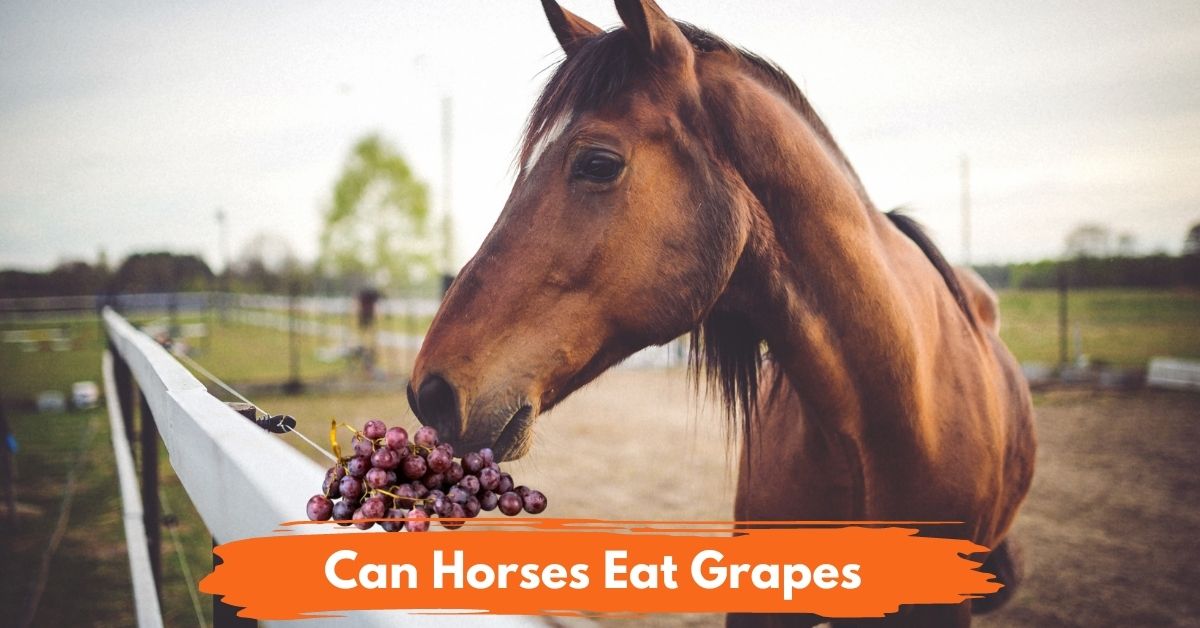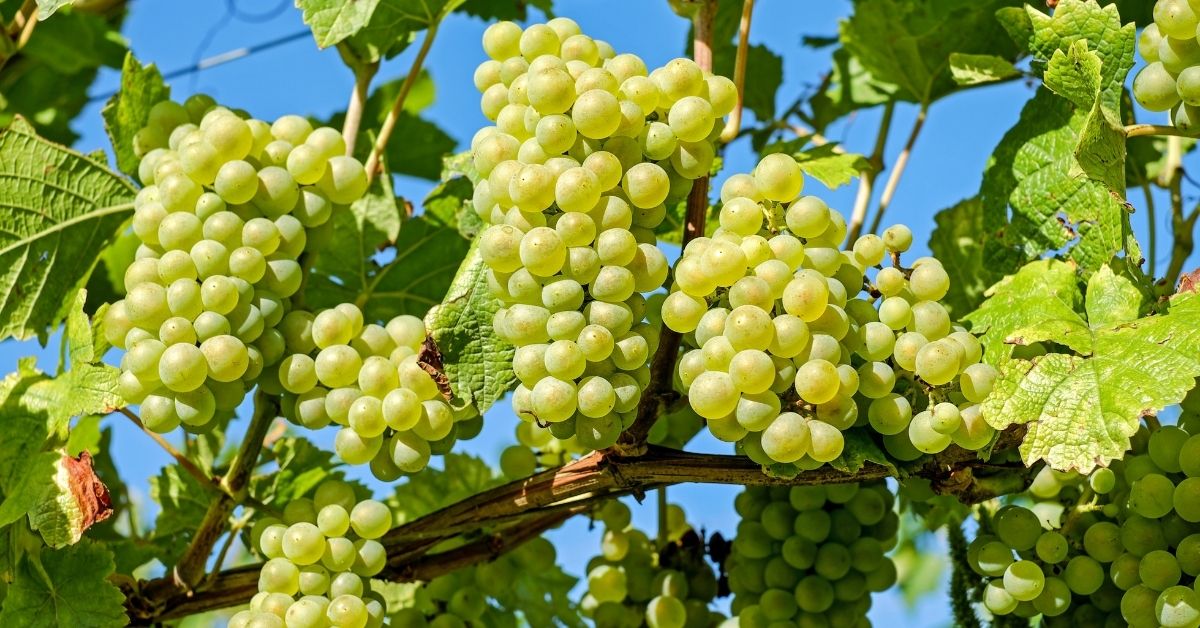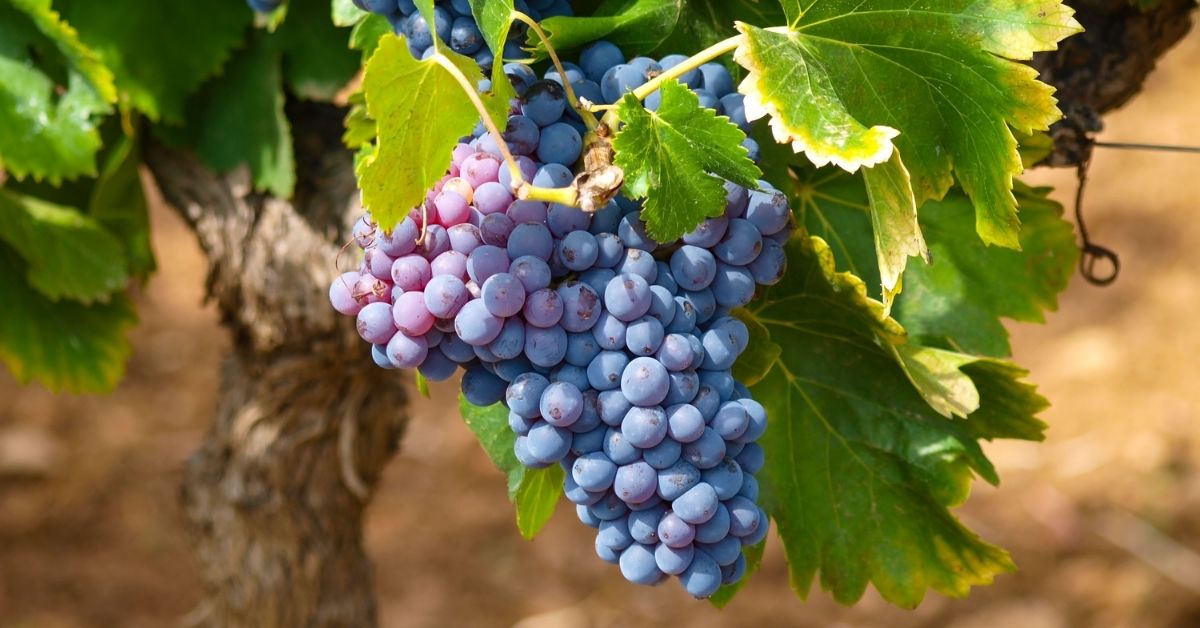
Yes! Horses can eat grapes. It’s a healthy and delicious treat that they will absolutely love! So, if you’re munching on some grapes and want to share the pleasure with your horse buddy, don’t hesitate!
Grapes are loaded with sugar and can be highly addictive to horses. Too much of it will result in problems such as obesity.
So while horses can eat grapes, it’s not the best option as a regular food source.
You might also have a lot of questions about horses and grapes. But don’t worry! We’ve compiled all the possible questions you may have on top of your head so that you won’t have to go far and wide to get your answers.
Are Grapes Safe For Horses?
Generally, grapes are safe for your horse. This juicy fruit is 82% water, making it a great hydrating treat on a hot day. Horses like the taste of grapes, and they’re a good source of vitamins A and C and antioxidants.
That said, you should feed grapes to your horse in moderation. Like all treats, they should make up no more than a small portion of your horse’s diet. And since grapes contain sugar, overfeeding them to horses can make them overweight.
Overfeeding grapes to your horse will also trigger a condition called laminitis.
So, if you’re looking for a healthy and delicious treat to share with your horse, grapes are a great option. Just be sure to feed them in moderation and avoid giving them regularly to horses. That way, they won’t suffer from the adverse effects of grapes.
Note that there will be rare instances where a horse may not like grapes. If your horse is one of them, don’t force it; instead, try other fruits or vegetables they may enjoy.
Can Horses Eat Green Grapes?

Yes! Horses can eat green grapes. In fact, all types of grapes are safe for horses to eat. Grapes come in different colors, including red, green, and black.
Red and black grapes contain an antioxidant called anthocyanins. This substance helps protect horses against illness.
Green grapes contain resveratrol, which is a beneficial compound to horses. Resveratrol helps improve circulation, reduce inflammation, and even protect against cancer.
So, no matter what color grapes you have on hand, your horse can enjoy them. Just be sure to wash them thoroughly before serving them to your horse. In addition, it’s also important to note that horses should only eat ripe grapes.
In my experience, I always find that horses love eating ripe, purple grapes as opposed to green grapes simply due to the taste. Horses love sweet fruits and they particularly love the taste that ripe grapes bring to the table.
Ripe grapes are softer and have a sweeter taste than unripe grapes. That means horses will enjoy eating ripe grapes without experiencing any problems with their stomach.
Can Horses Eat Grapes with Stems?
Yes, horses can eat the entire thing! This is because they have powerful jaws and can easily chew through the grape, stem, and all.
But if you’d like to remove the stem to ensure that your horse enjoys the grape more, go ahead. There’s no harm in doing so.
No matter your preference, remember to wash the grapes before feeding them to your horse. This will remove dirt, pesticides, or other chemicals.
I’d like to remove the stems to ensure my horse enjoys eating the grapes without the woody bits. But that’s just me—if your horse is game to eat the entire grape, stem, and all, then, by all means, let them!
There’s really no harm in both options. Just make sure to wash your grapes as your horse can end up ingesting dirt, pesticides, or other contaminants that might be on the fruit. That’s why you should wash grapes thoroughly before feeding them to your horse.
Can Horses Eat Grapes with Seeds?
Grapes with seeds are a big no-no for many small animals since they can cause choking. On the other hand, horses are larger and bigger; they can digest the seeds without any problems.
Since horses typically eat grapes in bunches, they won’t notice the bitter taste of the seeds. So it doesn’t make much of a difference in terms of taste in the grander scheme of things.
If you’re ever hesitant to give your horse grapes with seeds, don’t be. Horses can easily digest the seeds without any issues.
But if you’re concerned about the seeds potentially choking your horse, you can opt for seedless grapes instead—whatever makes you feel at ease. Just know that it has a zero percent chance of happening
Can Horses Eat Grape Leaves?

Yes, horses can eat grape leaves! Of course, horses will munch down on any type of foliage they can find, like any other plant-eating mammal.
If your horse ever eats grape leaves, there’s no need to worry as they’re completely safe for them.
Grape leaves are a great source of vitamins C, calcium, and iron. So they’re not only safe, but are also good for your horse’s health.
However, there’s a chance that grape leaves contain pesticides and other harmful chemicals. So don’t just let your horse graze on any random grapevine. Instead, make sure it’s from a safe source.
Don’t let your horse eat random
If you have grapes with grape leaves attached to them, wash them thoroughly before feeding them to your horse. That way, you can ensure that your horse is not in danger of ingesting any harmful chemicals.
Are Grapevines Toxic To Horses?
I’ve read about incidents where small animals like dogs died after eating grapevines. This is because grapevines contain tartaric acid, which is toxic for smaller animals.
Fortunately, it has little to no effect on horses. That means your horse can eat grape vines without the worry of any potential toxicity. Horses have been known to graze on grapevines without any problems.
Of course, as with anything else, it’s always best to be cautious about this matter. If you’re ever unsure whether a particular food is safe for your horse, consult with your veterinarian first. They will be able to give you the best and most accurate advice.
How Many Grapes Can a Horse Eat?
Due to their sweet and juicy taste, grapes are addictive for horses. If you leave a huge bunch of grapes, your horse might keep munching into it until the entire thing is gone.
To put it simply, horses can easily overeat grapes. That’s why it’s best to monitor the intake of grapes that your horse is consuming.
A good rule of thumb is to give your horse no more than 10 to 20 grapes once or twice weekly. That way, your horse will enjoy eating grapes without worrying about grape addiction or overeating.
Keep in mind that the severity of overeating depends on the size and weight of your horse. So if you have a smaller horse, it’s best to give them even fewer grapes than the suggested amount.
Conclusion
Grapes are a delicious and healthy treat for horses. They can eat grapes with seeds, grape leaves, and grapevines without problems.
Just wash them thoroughly before feeding them to your horse to avoid any possibility of ingesting harmful chemicals. And as with anything else, don’t let your horse overeat on grapes. An overweight horse is an unhealthy horse.
Also, make sure you don’t feed your unripe horse grapes. Not only do they taste bad, but they can also cause digestive issues for your horse. So only give them grapes that are ripe and ready to eat.
If you have concerns about feeding grapes to your horse, consider consulting with your veterinarian. They can give you the best advice on how to feed grapes to your horse safely and effectively.
